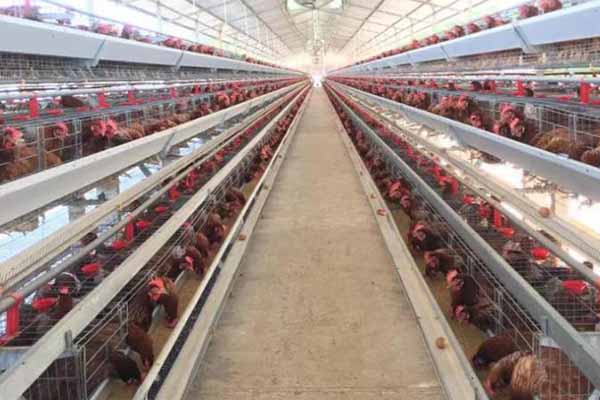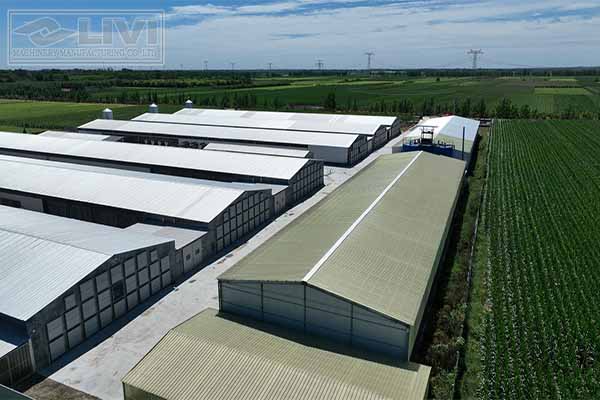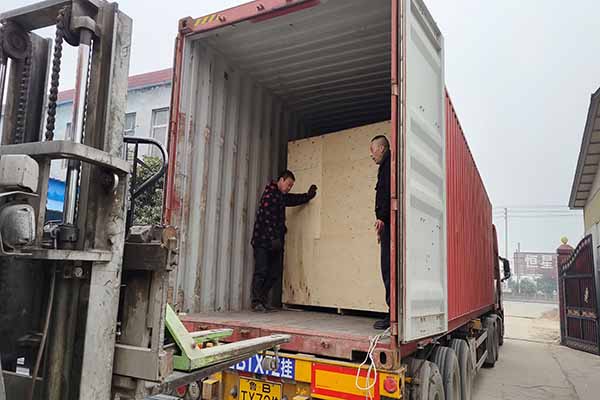Environmental Control Equipment for 10,000 Chicken Houses in Tanzania: A Comprehensive Guide
Time : 2025-06-27
The poultry industry in Tanzania has witnessed significant growth in recent years. With an increasing number of chicken houses being established across the country, it has become essential to invest in high-quality environmental control equipment to ensure the health and productivity of the birds. This article aims to provide a comprehensive guide on the types of environmental control equipment suitable for 10,000 chicken houses in Tanzania.
Understanding the Importance of Environmental Control in Poultry Farming
Environmental control plays a crucial role in poultry farming. The success of a poultry operation largely depends on the ability to maintain optimal conditions for the birds. Factors such as temperature, humidity, air quality, and lighting all contribute to the overall well-being and productivity of the chickens. In Tanzania, where the climate can be challenging, it is even more important to invest in reliable environmental control equipment.

Climate Considerations in Tanzania
Tanzania experiences a diverse range of climates, from tropical in the coastal regions to temperate in the highlands. The coastal areas are characterized by high humidity and temperatures, while the highlands have cooler temperatures with lower humidity. These conditions require specific environmental control solutions to ensure the comfort and health of the chickens.
Types of Environmental Control Equipment for Large-Scale Chicken Houses
1. Climate Control Systems
Climate control systems are essential for maintaining the desired temperature and humidity levels in chicken houses. For 10,000 chicken houses, the following systems are recommended:
- Heaters and Coolers: Electric heaters and coolers are necessary to regulate temperature in both hot and cold climates. In the coastal regions, coolers are crucial to prevent overheating, while in the highlands, heaters help maintain optimal conditions during the cooler months.
- Humidifiers and Dehumidifiers: These devices control humidity levels, which is critical for the health of chickens. In the high humidity areas, dehumidifiers prevent the growth of pathogens, while in the cooler regions, humidifiers add moisture to the air, avoiding respiratory issues.
2. Air Quality Management
Good air quality is vital for the health of chickens. Air quality management systems include:
- Exhaust Fans: Exhaust fans help in removing stale air and moisture from the chicken houses, ensuring a constant supply of fresh air.
- Intake Fans: Intake fans provide fresh air to the houses, controlling the flow of air to maintain optimal conditions.
- Air Filters: Air filters trap dust, dander, and other particulates, improving air quality and reducing the risk of respiratory diseases.
3. Ventilation Systems
Proper ventilation is essential for maintaining a healthy environment in chicken houses. The following ventilation systems are recommended:
- Automated Ventilation: Automated systems adjust the flow of air based on the temperature and humidity inside and outside the chicken houses.
- Manually Operated Ventilation: In regions where power supply is inconsistent, manually operated ventilation systems can be a reliable alternative.
4. Lighting Systems
Lighting systems are important for controlling the laying cycle and maintaining overall health. For 10,000 chicken houses, consider the following:

- LED Lighting: Energy-efficient LED lights provide the necessary lighting while reducing energy consumption.
- Timers: Automated timers help in managing the light cycle, which is crucial for the chickens’ health and productivity.
Implementation and Maintenance of Environmental Control Equipment
Implementing and maintaining environmental control equipment is critical for its effectiveness. Here are some key points to consider:
- Professional Installation: Ensure that all equipment is installed by professionals who are experienced in poultry farming and environmental control.
- Regular Maintenance: Schedule regular maintenance checks to ensure that all systems are functioning optimally.
- Training Staff: Train your staff on the proper operation and maintenance of the equipment to ensure its long-term effectiveness.
Conclusion
Investing in high-quality environmental control equipmen t is essential for the success of a large-scale poultry operation in Tanzania. By carefully selecting and maintaining the right equipment, farmers can ensure optimal conditions for their chickens, leading to improved health, productivity, and profitability.
t is essential for the success of a large-scale poultry operation in Tanzania. By carefully selecting and maintaining the right equipment, farmers can ensure optimal conditions for their chickens, leading to improved health, productivity, and profitability.











